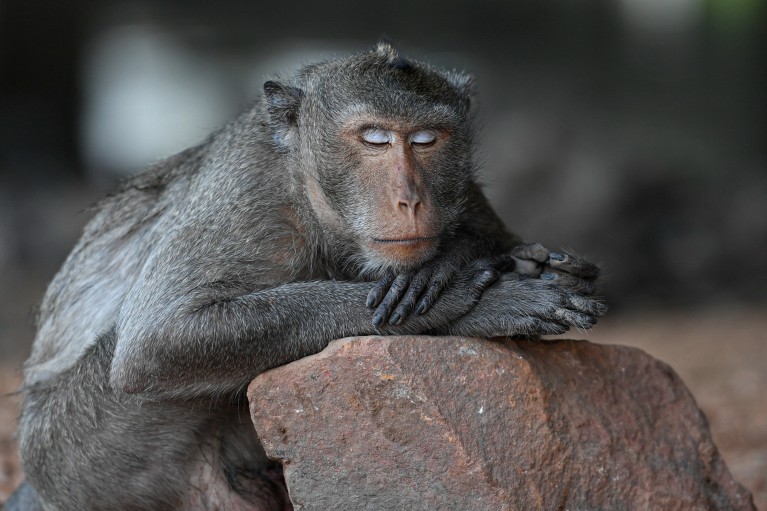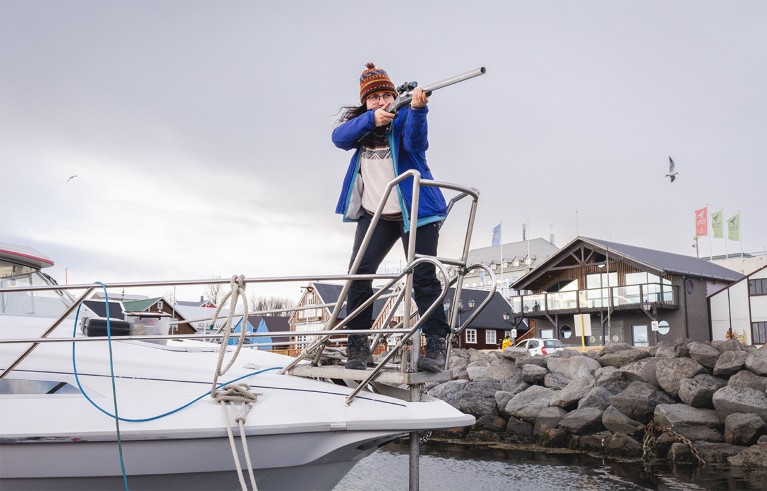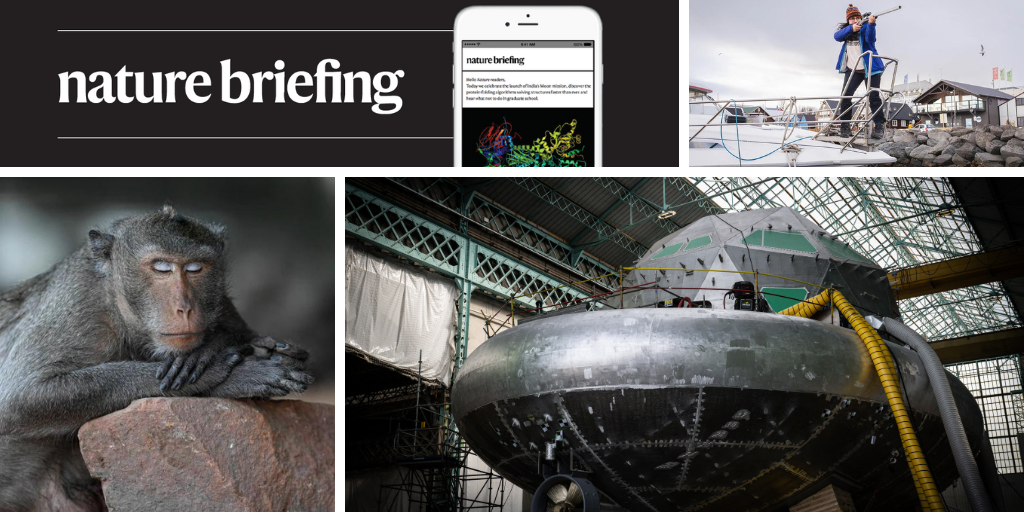Hello Nature readers, would you like to get this Briefing in your inbox free every day? Sign up here.

Cellular measures of ageing changed more slowly in the liver, brain and other tissues of monkeys taking the drug metformin.Credit: Vachira Vachira/NurPhoto/Getty
Results of a three-year study show that metformin, an inexpensive diabetes drug, slows ageing in male monkeys, particularly in the brain. Cynomolgus macaques (Macaca fascicularis) that received the drug every day showed slower age-associated brain decline than those who didn’t, as well as enhanced cognition and preserved liver function. The results raise the possibility that the medication could one day be used to postpone ageing in humans. Although dying is inevitable, “ageing, the way we know it, is not”, says geroscientist Nir Barzilai.
Reference: Cell paper
More than 80% of survey participants at a top research university agreed that air travel is bad for the environment, yet in 2022, more than 35% of them — especially professors and PhD students — flew to at least one meeting. The in-person culture of conferences puts academics in a tricky spot: fly to attend or risk missing out on opportunities. “As long as it is necessary to have international conferences on your CV to get a professorship, the individual actually can’t do that much,” says political scientist Sebastian Jäckle.
Reference: Global Environment Change paper
Research-integrity sleuths have flagged more than 130 ‘stealth corrections’ in the scientific literature, where journals have updated papers without flagging that a change has been made. The findings have encouraged at least one publisher, MDPI, to update its policy on publicizing corrections that it deems to be minor. But there is no general agreement among scientists and publishers about how big a change must be to warrant a notice.
Reference: arXiv preprint (not peer reviewed)
The Tara Polar Station, a drifting research base built to withstand Arctic conditions, will launch from France this month for its first ocean trials after five years of development. The station is scheduled to start a series of two-year voyages in 2026. Researchers hope a long-term presence in the Arctic will help them understand the effect climate change is having on polar ecosystems.

The Tara Polar station is 26 metres long and designed to ride on pack ice and float on the open seas. It contains laboratory spaces and an opening to the ocean to collect samples without needing to drill into sea ice (Credit: Lou Benoist/AFP via Getty)
Features & opinion
APOE4 is one of the most common genetic variants linked to late-in-life Alzheimer’s disease. Carrying one copy of the variant can triple a person’s risk of the disease; carrying two can increase it by 25 times. When APOE4 was discovered in 1993, scientists hoped it would point to the cause of Alzheimer’s or ways to treat it, but they’ve been struggling to make progress. Now, new results suggest the variant could itself be a cause: three quarters of people of European ancestry with two copies of APOE4 will show amyloid accumulation in the brain by age 65.
A new commission will aim to understand and mitigate the mental-health issues triggered by “global environmental mega-trends” such as extreme weather, city living and ecosystem collapse. “The stress, trauma and displacement caused by such environmental adversities will probably increase the prevalence of mental illnesses, including anxiety, post-traumatic stress disorder, substance use, depression and dementia,” write members of the Earth, Brain and Health Commission in Nature Mental Health. The multidisciplinary group of experts “will provide a roadmap for the next wave of researchers”.
Nature Mental Health | 9 min read
A bin overflowing with plastic waste inspired analytical chemist Jane Kilcoyne to get serious about reducing her lab’s environmental impact by switching away from plastic lab equipment, extending the expiry dates of chemical solutions and cutting the operating times of energy-hungry fume hoods. By switching to to digital documents “we reduced our paper consumption by more than 95%”, she tells the Working Scientist podcast.
Nature Careers Podcast | 24 min listen
Where I work

Yakamoz Kizildas is a marine biologist and master’s student at the University of Groningen in the Netherlands.Credit: Gaia Squarci for Nature
Yakamoz Kizildas collects the DNA of humpback whales (Megaptera novaeangliae) in Iceland to learn about their behaviour in the North Atlantic ocean. “From around 30 metres away, I fire a dart into the flank of the whale, under the dorsal fin,” she says. The dart takes a sample of tissue, which Kizildas uses to identify individual whales. “By combining my data with other sets collected by scientists over the past 34 years, we have been able to identify more than 6,500 individual humpbacks from the North Atlantic.” (Nature | 3 min read. Credit: Gaia Squarci for Nature)
On Friday, Leif Penguinson was venturing along the Chorrillo Waterfall Trail near El Chaltén in the Southern Andes. Did you find the penguin? When you’re ready, here’s the answer.
Thanks for reading,
Flora Graham, senior editor, Nature Briefing
With contributions by Jacob Smith
Want more? Sign up to our other free Nature Briefing newsletters:
• Nature Briefing: Microbiology — the most abundant living entities on our planet — microorganisms — and the role they play in health, the environment and food systems.
• Nature Briefing: Anthropocene — climate change, biodiversity, sustainability and geoengineering
• Nature Briefing: AI & Robotics — 100% written by humans, of course
• Nature Briefing: Cancer — a weekly newsletter written with cancer researchers in mind
• Nature Briefing: Translational Research — covers biotechnology, drug discovery and pharma


